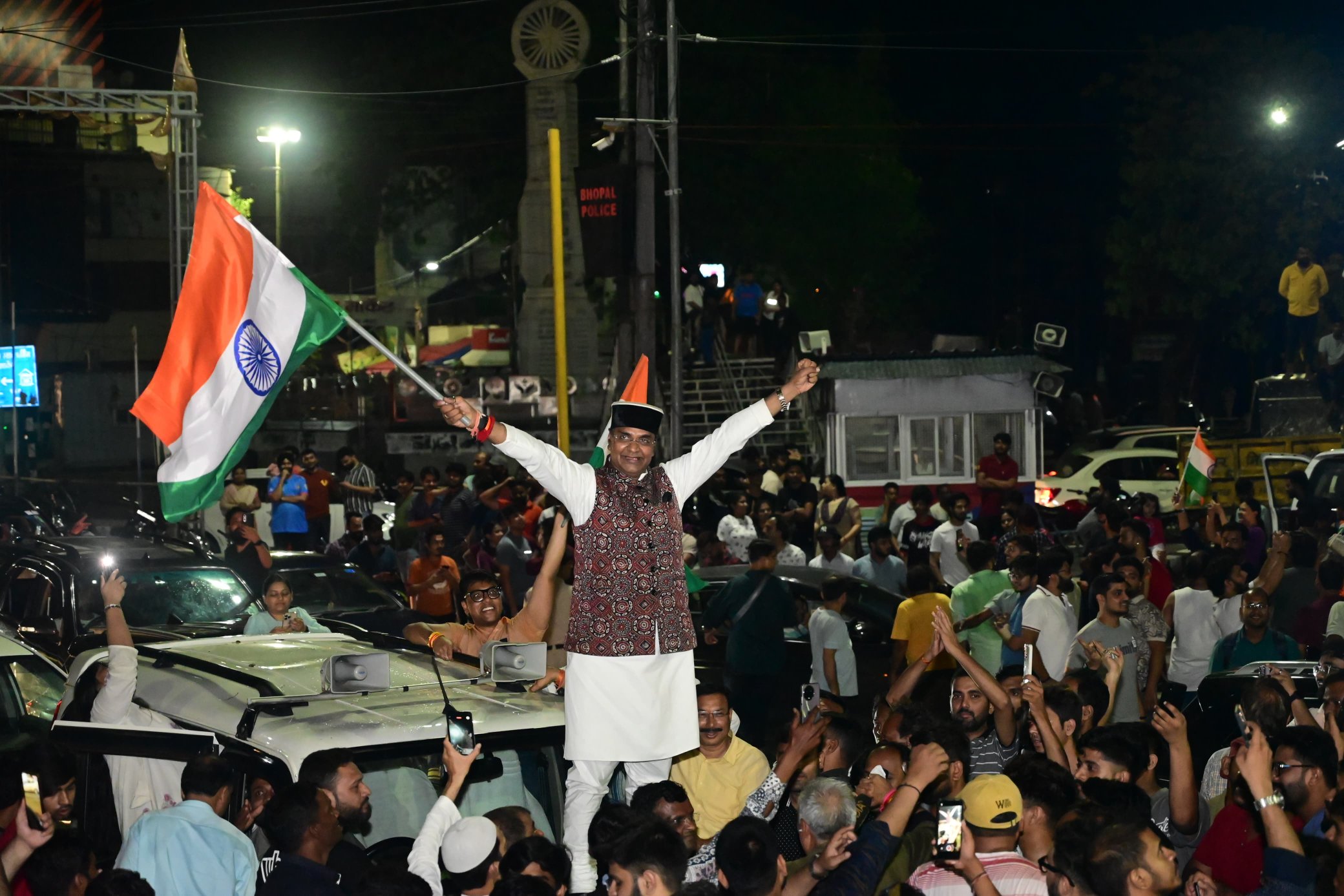Hindenburg Research reignites the Adani controversy with fresh allegations against SEBI Chairperson Madhabi Puri Buch. Discover the latest on the Hindenburg Research Adani allegations and the potential conflict of interest within India’s regulatory framework.
The ongoing controversy between US-based short-seller Hindenburg Research and the Adani Group has taken a dramatic turn, with new allegations targeting the Securities and Exchange Board of India (SEBI) and its Chairperson, Madhabi Puri Buch. The latest claims by Hindenburg Research have intensified the scrutiny on India’s financial regulatory framework, raising serious concerns about potential conflicts of interest. Below, we explore the 10 key points surrounding the latest Hindenburg Research Adani allegations and their broader implications.
1. Hindenburg Research’s Latest Allegations Against SEBI
In its latest report, Hindenburg Research has made explosive allegations against SEBI’s Chairperson Madhabi Puri Buch and her husband, Dhaval Buch, accusing them of holding financial stakes in obscure offshore funds tied to the Adani Group. These funds, according to Hindenburg, were instrumental in the alleged financial irregularities involving the Adani Group, further complicating the ongoing investigation into the conglomerate’s practices.
2. Accusations of Conflict of Interest
The heart of the Hindenburg Research Adani allegations revolves around a potential conflict of interest within SEBI. The research firm questions SEBI’s reluctance to thoroughly investigate the complex network of offshore entities linked to the Adani Group, suggesting that the Buchs’ financial ties to these entities may have influenced the regulator’s actions—or lack thereof.
3. Role of Offshore Funds in the Adani Allegations
Hindenburg Research claims that the offshore funds in question, reportedly controlled by Vinod Adani, were used to inflate the stock prices of Adani Group companies. These funds, based in jurisdictions like Bermuda and Mauritius, are alleged to have been part of a sophisticated scheme to manipulate the market, making the investigation into them a critical aspect of the allegations.
4. Scrutiny of Financial Disclosures
The Hindenburg Research Adani allegations also cast doubt on the transparency of financial disclosures made by the Buchs. With an estimated net worth of $10 million, Hindenburg questions why the couple chose to invest in high-risk offshore funds rather than reputable Indian mutual funds, particularly given Madhabi Puri Buch’s role as SEBI Chairperson.
5. Supreme Court’s Role in the Investigation
Supporting its claims, Hindenburg Research cites a Supreme Court observation that SEBI had failed to uncover the identities of Adani’s offshore shareholders. This failure, according to Hindenburg, might be linked to a deliberate reluctance on SEBI’s part to probe deeper into the Adani Group’s offshore dealings due to potential conflicts of interest involving its leadership.
6. Denial from Madhabi Puri Buch
In response to these serious allegations, Madhabi Puri Buch and her husband have strongly denied any wrongdoing. They labeled the Hindenburg Research Adani allegations as “baseless” and asserted that their finances are transparent, with all required disclosures having been made to SEBI over the years. They emphasized that their financial affairs are fully compliant with regulatory standards.
7. Political Fallout and Congress’s Response
The allegations have sparked a political uproar in India, particularly from the Congress party. In light of the Hindenburg Research Adani allegations, Congress has demanded immediate action to address what it sees as a severe conflict of interest within SEBI. Party leader Jairam Ramesh has called for urgent government intervention to ensure that SEBI’s investigation into the Adani Group is free from bias.
8. Call for a Joint Parliamentary Committee (JPC) Investigation
Further intensifying the situation, Jairam Ramesh has called for the establishment of a Joint Parliamentary Committee (JPC) to investigate the full scope of the Adani Group’s alleged financial misconduct. The Hindenburg Research Adani allegations have added weight to this demand, with Ramesh arguing that only a comprehensive JPC investigation can reveal the truth behind the alleged financial irregularities.
9. Context of Previous Allegations by Hindenburg Research
This latest development is part of a broader pattern of scrutiny from Hindenburg Research, which previously accused the Adani Group of orchestrating “the largest con in corporate history” in January 2023. Those allegations led to a dramatic loss in market value for the Adani Group, though the conglomerate has since recovered much of its wealth. The Hindenburg Research Adani allegations continue to challenge the conglomerate’s financial practices and regulatory oversight.
10. Broader Implications for India’s Regulatory Framework
The renewed focus on SEBI and the Hindenburg Research Adani allegations could have far-reaching implications for India’s financial regulatory environment. If the allegations are proven, they could undermine confidence in SEBI’s ability to act as an impartial regulator, potentially leading to calls for stronger oversight mechanisms and reforms to prevent similar conflicts of interest in the future.
The latest Hindenburg Research Adani allegations have added a new layer of complexity to the ongoing controversy surrounding the Adani Group. By implicating SEBI’s top official, Hindenburg has brought to light critical issues of transparency, regulatory oversight, and potential conflicts of interest within India’s financial markets. As the situation unfolds, the responses from regulatory bodies, political leaders, and the Adani Group itself will be closely watched for their impact on the future of corporate governance and market regulation in India.
For further insights and comprehensive content, please visit our homepage



